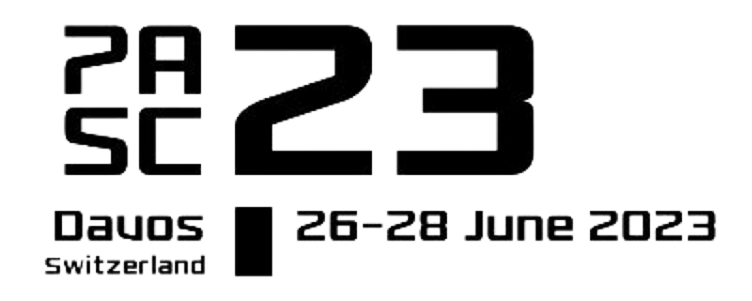Presentation
AK01 - Anti Patterns of Scientific Machine Learning to Fool the Masses: A Call for Open Science
Presenter
DescriptionAn anti-pattern is a frequently occurring pattern that is ineffective and risks being counterproductive. The term comes from software engineering, inspired by the classic book “Design Patterns” (highlighting desirable and effective patterns for code). Over the years, the term has spread beyond software to other fields, like project management. An anti-pattern is recurring, it has bad consequences, and a better solution exists. Documenting anti-patterns is effective in revealing how to make improvements. This talk will call attention to anti-patterns in scientific machine learning—faintly tongue-in-cheek—with a call to do better. Scientific machine learning promises to help solve problems of high consequence in science, facing challenges like expensive or sparse data, complex scenarios, stringent accuracy requirements. It is expected to be domain-aware, interpretable, and robust. But realizing the potential is obstructed by anti-patterns: performance claims out of context, renaming old things, incomplete reporting, poor transparency, glossing over limitations, closet failures, overgeneralization, data negligence, gatekeeping, and puffery. Open science—the culture and practices that lead to a transparent scientific process and elevate collaboration—is the lens through which we can see a path for improvement. In the Year of Open Science, this talk is a call for a better way of doing and communicating science.
TimeMonday, June 2610:30 - 11:20 CEST
LocationDavos
Event Type
Keynote
Presenter
Lorena A. Barba is professor of mechanical and aerospace engineering at the George Washington University in Washington, DC. Her research interests include computational fluid dynamics, high-performance computing, and computational biophysics. An international leader in computational science and engineering, she is also a long-standing advocate of open source software for science and education, and is well known for her courses and open educational resources. Barba served (2014–2021) in the Board of Directors for NumFOCUS, a US public charity that supports and promotes world-class open-source scientific software. She is an expert in research reproducibility, and was a member of the National Academies study committee on Reproducibility and Replicability in Science. She served as Reproducibility Chair for the SC19 (Supercomputing) Conference, is Editor-in-Chief of IEEE Computing in Science & Engineering, was founding editor and Associate EiC (2016–2021) for the Journal of Open Source Software, and is EiC of The Journal of Open Source Education. She was General Chair of the global JupyterCon 2020 and was named Jupyter Distinguished Contributor in 2020.


